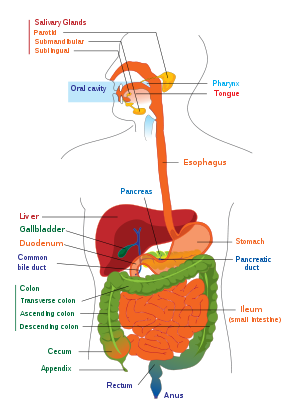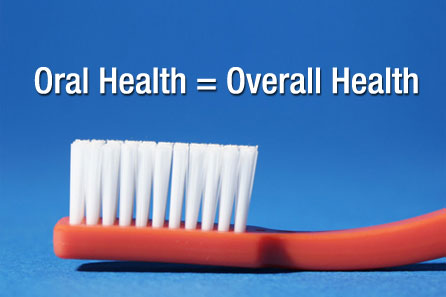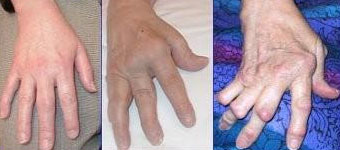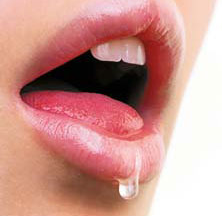 Diet, nutrition and oral health are closely linked. Nutrition is an essential for the growth, development, and maintenance of structures and tissues in the mouth. During periods of rapid cell growth, there can be an irreversible effect on the developing oral tissues if any nutrition deficiency is present. Prior to tooth eruption in the mouth, nutritional status can influence tooth enamel maturation and chemical composition as well as tooth shape and size. Early malnutrition increases a child’s risk to tooth decay in the baby teeth.Throughout life, nutritional deficiencies or toxicities can affect host resistance, healing, oral function, and oral-tissue integrity. Continue reading
Diet, nutrition and oral health are closely linked. Nutrition is an essential for the growth, development, and maintenance of structures and tissues in the mouth. During periods of rapid cell growth, there can be an irreversible effect on the developing oral tissues if any nutrition deficiency is present. Prior to tooth eruption in the mouth, nutritional status can influence tooth enamel maturation and chemical composition as well as tooth shape and size. Early malnutrition increases a child’s risk to tooth decay in the baby teeth.Throughout life, nutritional deficiencies or toxicities can affect host resistance, healing, oral function, and oral-tissue integrity. Continue reading
Tag Archives: oral health
Important Vitamins and Minerals for Dental Health
 One of the very important and essential factors to good oral health is the intake of proper nutrition and diet. Nutritional problems can manifests when there is inadequate dietary intake of a nutrient, which can affect our entire body including our dental health. Continue reading
One of the very important and essential factors to good oral health is the intake of proper nutrition and diet. Nutritional problems can manifests when there is inadequate dietary intake of a nutrient, which can affect our entire body including our dental health. Continue reading
Toothbrushing techniques for children with down syndrome
Tooth brushing is indeed a vital daily activity for a good oral health. Besides that, tooth brushing protects the teeth against dental caries and it also helps prevent bad breath and gum disease. Gum disease is a fatal condition as it may lead to serious diseases. Therefore tooth brushing is important in children and special attention is needed to be given to those with disabilities. Continue reading
How does arthritis affect your oral health?
Arthritis is a complicated disease, which affects the joints of the body. There are more than a hundred different described conditions, with osteoarthritis and rheumatoid arthritis being the two most common ones. Osteoarthritis involves degeneration of the synovial cartilage and bony overgrowth on the joint articulating surfaces. Rheumatoid arthritis on the other hand has an autoimmune origin, involving self-production of auto-antibodies in the body which circulates in the blood and can attack the joints which are deemed foreign by the immune defense system. Although osteoarthritis and rheumatoid arthritis have different causes and risk factors, they are often present with similar symptoms, such as constant joint pain. Both diseases can be debilitating and adversely affect your oral health if not managed accordingly. Continue reading
Oral Health: Relationship between the body and mouth II
Continue from section I…
Is there a way to link oral signs and symptoms to certain diseases?
In some diseases, there can be very specific oral health presentations or manifestations. In fact, there are times where the mouth is the first site to show signs of an underlying systemic condition, preceding clinical diagnosis by months. Hence it is important that if you noticed any sudden changes in your mouth that cannot be relate back or correspond to a known cause, it may be wise to monitor those changes. If the abnormal changes persist for weeks or become symptomatic, it is best to get it checked out by a dentist as soon as possible to prevent late diagnosis and complications.
Below is an outline of possible oral health problems or presentations under some of the common conditions or diseases of the body: Continue reading
Oral Health: Relationship between the body and mouth I

Relationship of the mouth to the body
As stressed in previous articles, oral health can influence our general health and vice verse. In fact, some changes in our general health are often reflected in the oral cavity and at times, can even precede clinical diagnosis of the systemic condition.
What are the common body changes that affect our oral health?
Hormonal changes in the body can often be a source of drastic oral health changes despite patients having fairly good oral hygiene. A hormone imbalance in the body, such which occurs during pregnancy or puberty spurt, can modify behaviors of cells in our body, in particular our immune system. Continue reading
Oral Health Guidelines for Pregnant Women
When you are an expecting mother or planning to get pregnant it is important to know some oral health factors that would aid and have impact on the health of mother and the growth of fetus.
When to see a dentist?
It is best to see a dentist before you plan for pregnancy. It is easier to treat your dental decays and gum disease before you get pregnant as body changes may complicate some of the dental diseases. Continue reading
Oral Health Pt 3: Importance of saliva
Continued from Pt 2…
Saliva is an integral part of oral health and many people do not actually realise the importance of saliva has in our mouth. The role of saliva is often underplayed due to lack of awareness. Saliva has many important functions and it is unfortunate that most people would only realise this when they have a chronic case of xerostomia or dry mouth, which is often hard to manage as treatment available involves mainly palliative care rather than a cure.
Function of saliva
There are three major salivary glands found in the mouth, along with many more minor ones. Each of the major salivary glands produces slightly different quality of secretion, some being more watery and others with a thicker consistency. All these secretions are combined together in the mouth to form saliva. Saliva consists of mainly water (95%), enzymes, salivary proteins and ions. Continue reading
Oral Health Pt 2: Effects of toothbrushing, dietary sugars and acids

Toothbrushing improves oral health
What affects oral health?
The obvious answer would be oral hygiene care. Importance of tooth brushing cannot be stressed enough and the quality, rather than the quantity matters more. While most people brush two, some even three times a day, the truth is that it does not necessarily prevent you from dental problems such as dental decay or gingivitis especially if you are not brushing appropriately. Having a good tooth brushing technique is crucial to good oral health as being able to remove plaque effectively is directly related to the state of your mouth. In fact, some people with very good tooth brushing technique and reasonable sugar intake are actually able to get away with just brushing once a day without developing any dental problems. The only reason that dentists are advocating their patients to brush twice a day being most people of the population will fail to remove plaque adequately and requires that extra kick to help maintain oral health at good levels. Continue reading
Oral Health in relation to Dental Decay and Gum Disease
 What is Oral Health ?
What is Oral Health ?
Oral health encompasses the health of our oral cavity. Our oral cavity (mouth) consist of our teeth and oral mucosa mucosa (gums). The health of our teeth is commonly compromised by bacteria which causes dental decay. Dental Decay is a dynamic process and it occurs due to a combination of a bad diet, insufficient oral hygiene care and bacteria in our mouth.



